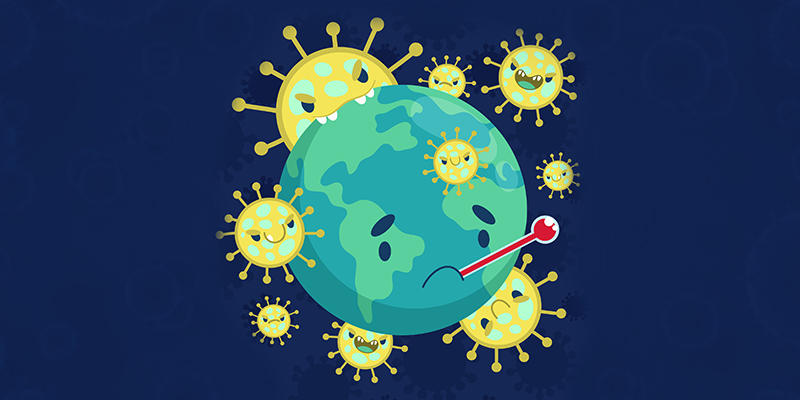The concept of a pandemic is not alien to humankind. During human history, the world has seen many deadly diseases – The Plague or “Black Death” (14th century), Spanish Influenza (1918), HIV/AIDS (20th Century), Severe Acute Respiratory Syndrome (SARS, 2002-2003) – that went on to reshape the future of mankind. The most recent novel coronavirus has been equally devastating in scale and intensity much as its predecessors.
Ancient civilizations believed that plagues were a doing of spirits and gods, who inflicted disease and destruction upon the deserving. Often preposterous, these perceptions garnered very little research about the true nature of the pandemics and resulted in the deaths of millions of people across the globe.
The first pandemic was recorded in the city of Pelusium, near modern-day Port Said, in north-eastern Egypt, in the year 541. Even though the earliest symptom of this pestilence was fever, it was mild and did not create any suspicion of danger. But, within a few days, victims developed lumps in their groin and under their arms. The suffering was terrible; with many people going into a coma, others into violent delirium.
Despite remarkable progress in the 1970s and the following years, on the development of new vaccines, antibiotics, and other technologies, more than 1500 new pathogens were discovered, of which 70% proved to be of animal origin. It was as though the microbes had gone out of sight, only to bring to focus chronic and non-communicable diseases.
HIV, which was a relatively new disease in human history back then, has now infected about 70 million people in just 35 years and killed an estimated 35 million. The world hadn’t heard about SARS before 2003, but it affected more than 8000 people, killing about 1 in 10 of them, creating fear, panic and economic damage across the world.
This shows a clear pattern. A new kind of HIV, plague or Ebola is all the more probable, given that new and more intense factors – such as increased contacts between people, between people and animals, increased trade among countries and greater movement of people between borders – may give way to faster spread and easier transmission of the diseases.
Despite great technological progress and expansion in the field of technology and medicine, the theories and practices of infectious disease epidemiology are struggling to keep pace with the transitional nature of epidemics either because of their rapidly evolving nature or lack of freedom among all sections of society to access quality healthcare measures.

